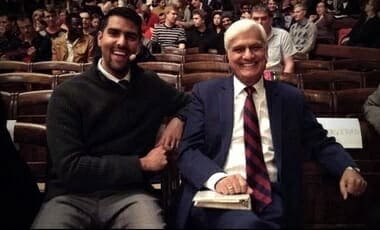(First posted in 2010, edited in 2015, added to in 2018, re-edited 2024)
My FACEBOOK intro to this post:
In this updated post from 2010, the category mistakes of
- “can God make a Rock so big he can’t lift it?”
- “if everything needs a beginning [as the Kalam Cosmological Argument says], who began [created] God”
- “can God make 2+2=5?”
are answered herein…
- These kinds of arguments are clearly illogical and even silly, although they are commonly used by inexperienced atheists. Most intelligent atheists have dropped these kinds of arguments long ago.
This post should be married to my other post:
The Euthyphro Argument Dissected
Well, Who Created God?
A response by Andrew Wilson to an objection received on Big Objections
- I also want to stress that this isn’t special pleading for God. This is what the atheist has typically said about the universe; that the universe is uncreated and eternal in its existence. No atheist was asking “Who created the universe”? They thought the universe was “Just there,” that it was a brute fact. Although that conclusion is now invalidated by powerful scientific evidence and philosophical arguments. As Frank Turek put it “Something must be eternal. Either the universe or something outside the universe”. Since science has proven that the universe isn’t eternal, whatever brought it into being must be eternal. (Cross Examined)
Stanford Encyclopedia of Philosophy notes the eternality of the universe in atheistic cosmology.
The Daily Apologist has a good concise response. As well as Apologetic Junkie.
J. P. Moreland shows how the “what caused God” (or “who caused God”) rebuttal to the Kalam Cosmological Argument is making a categorical mistake. Furthermore, Moreland shows that calling God the uncaused cause is not arbitrary nor is it trying to define God into existence.
God and Rock n Roll
Here is a PDF of a Power Point presentation I gave in a Sunday school class. Another good read on this can be found at Christianity.com.
Similarly, a common challenge that includes the same categorical mistake has to do with “Can God make a rock soo big He cannot lift it?” William Lane Craig mentions a paper written by Thomas P. Flint and Alfred J. Freddoso in the following video, that is here: Maximal Power
Here is an old post by me:
The following will explain why many experienced atheists have given up this argument. Richard Swinburn in his book, The Coherence of Theism, explains why such thinking is illogical (pp. 153-154):
… A person is omnipotent if and only if he is able to do any logically possible action, any action, that is, of which the description is coherent. It may be objected that in order to be truly omnipotent, a person should be able to do not merely the logically possible, but the logically impossible as well. This objection is, however, misguided. It arises from regarding a logically impossible action as an action of one of one kind on a par with an action of another kind, the logically possible. But it is not. A logically impossible action is not an action. It is what is described by a form of words which purport to describe an action, but do not describe anything which is coherent to suppose could be done. It is no objection to A’s omnipotence that he cannot make a square circle. This is because “making a square circle” does not describe anything which it is coherent to suppose could be done.
A proper understanding of omnipotence has been known and defined for quite some time; the way it is used by the skeptics here in this thread is the miss-defining of a well-defined concept. For instance, in the Pocket Dictionary of Apologetics & Philosophy of Religion, omnipotence is defined as: “The quality of being all-powerful, normally understood as the power to perform any action that is logically possible and consistent with God’s essential nature.”
Even Thomas Aquinas saw this o’ so long ago:
This point was recognized by Aquinas. He wrote that
“it is incompatible with the meaning of the absolutely possible that anything involving the contradiction of simultaneous being and not being should fall under divine omnipotence. Such a contradiction is not subject to it, not from any impotence in God, but simply because it does not have the nature of being feasible or possible. Whatever does not involve a contradiction is in the realm of the possible with respect to which God is called omnipotent.” — Summa Theologiae, vol. v. (Thomas Gilby trans.), Ia.25.3
All confess that God is omnipotent; but it seems difficult to explain in what His omnipotence precisely consists: for there may be doubt as to the precise meaning of the word ‘all’ when we say that God can do all things. If, however, we consider the matter aright, since power is said in reference to possible things, this phrase, “God can do all things,” is rightly understood to mean that God can do all things that are possible; and for this reason He is said to be omnipotent. Now according to the Philosopher (Metaph. v, 17), a thing is said to be possible in two ways.
First in relation to some power, thus whatever is subject to human power is said to be possible to man.
Secondly absolutely, on account of the relation in which the very terms stand to each other. Now God cannot be said to be omnipotent through being able to do all things that are possible to created nature; for the divine power extends farther than that. If, however, we were to say that God is omnipotent because He can do all things that are possible to His power, there would be a vicious circle in explaining the nature of His power. For this would be saying nothing else but that God is omnipotent, because He can do all that He is able to do.
It remains therefore, that God is called omnipotent because He can do all things that are possible absolutely; which is the second way of saying a thing is possible. For a thing is said to be possible or impossible absolutely, according to the relation in which the very terms stand to one another, possible if the predicate is not incompatible with the subject, as that Socrates sits; and absolutely impossible when the predicate is altogether incompatible with the subject, as, for instance, that a man is a donkey.
— Summa Theologica I:25:3 (REDDIT: Can God make 2+2=5 if he so chooses?)
From a previous debate elsewhere on the net The below was taken somewhat from the book, Unshakeable Foundations: Contemporary Answers to Crucial Questions About the Christian Faith, by Geisler & Bocchino.
You are again making a category mistake, this is a real “logical fallacy,” or, mistake! When you ask who made God – or, does God need a beginning, it is akin to asking, “how does the color green taste.” Your other comments about change and the like is akin to the following mock conversation, don’t get me wrong… I enjoyed your last few queries… why? Because you are asking questions while assuming the thing said is true, e.g., God’s unlimited power (you are assuming what you are refuting – in other words). A true skeptic sheds even skepticism at times and puts on the alternative view and seeks answers and criticisms from within:
One day, while I am having lunch with some student friends, tom decides to sit at the table and say, “Do you mind if I ask you a few questions?”
You answer, “No prob.”
Tom then asks you, “Didn’t Jesus say in Matthew 19:26, ‘With God all things are possible?”
I answer, “Yes.”
Tom continues, “Do you believe that God is all-powerful and can do all things?”
Again I answer, “Yes.”
Now Tom thinks his moment is about to unfold, so with a sarcastic grin he asks, “Okay, can God create a rock so big that He cannot lift it?”
continued…
I ponder the question for a moment, thinking to myself, If I say yes, I’ll be admitting that God is powerful enough to create the rock but not powerful enough to move it! However, if I say no, I’ll be admitting that God is not all-powerful, because He cannot create a rock of that magnitude. It seems that either answer will force you to violate the law-of-noncontradiction and contradict your view of God, defined as an all-powerful Being. It also seems as if Tom is using first principles to discredit you and your view of God. It is true that Tom is speaking correctly about God’s power, but is he using first principles correctly?
Before we examine Tom’s questions, remember that now is not the time to appeal to ignorance and tell Tom that he is trying to use human reason and that there are some things we just cannot understand about God. Nor should you say that somehow God is exempt from such a question. Instead, I must focus in on this question and think of a principle question to ask him (Socratic method) that moves the conversation from unstable emotional ground to firm conceptual territory.
Let’s think about Tom’s question and apply the law-of-noncontradiction. Tom wants God to create a rock so big that He cannot lift it. What is Tom really asking God to do? In order to find out, we need to define and clarify the use of Tom’s words. The first question that comes to mind is, “How big of a rock does Tom want God to create?” Well, Tom wants God to create a rock so big that it would be impossible for Him to move it. Now, how big would a rock have to be in order for God not to be able to move it? What is the biggest physical entity that exists? Of the course, the biggest physical entity is the universe, and no matter how much the universe expands it will remain limited, finite physical reality – a reality that God can “lift.” even if God created a rock the size of an ever-expanding universe, God could still lift or control it. The only logical option is for God to create something that exceeds His power to lift or control. But since God’s power is infinite, He would have to create a rock of infinite proportions! This is the key: Tom wants God to create a rock, and a rock is a physical, finite thing. How can God create an object that is finite by nature – and give it an infinite size? There is something terribly wrong with Tom’s question. So let’s apply the correct use of the law-of-noncontradiction to analyze it.
It is logically and actually impossible to create a physically finite thing and have it be infinitely big! By definition, an infinite, uncreated thing has no limits, and a finite, created thing does. Consequently, Tom has just asked if God can create an infinitely finite rock, that is, a rock that has limits and, at the same time and in the same sense, does not have limits. This question, then, violates the law-of-contradiction and turns out to be utter nonsense. Tom thought he was asking an important question, one that would put the Christian on the horns of a dilemma. Instead, he only managed to show his own inability to think clearly.
Now that we have a clear understanding of Tom’s question, it’s simply a matter of formulating a principle question to ask him in order to reveal his error. How about this one: “Tom, how big do you want God to create that rock? If you tell me how big, I’ll tell you if He can do it.” I can keep asking Tom that question until it reaches the size of the universe and eventually introduce the idea of infinity. Once Tom reaches the point where he begins to see what he is really asking God to do, to create an infinite rock, he needs to be shown that he is asking God to do something that is logically irrelevant and impossible. God could no more create an infinitely finite rock than He could create a square circle: both are examples of intrinsic impossibilities. Commenting on intrinsic impossibility and an all-powerful God, C. S. Lewis said:
“It [the intrinsically impossible] is impossible under all conditions and in all worlds and for all agents. ‘All agents’ here includes God Himself. His Omnipotence means power to do all that is intrinsically possible, not to do the intrinsically impossible. You may attribute miracles to him, but not nonsense.” (The Problem of Pain, p. 28)
Not every question being asked is automatically meaningful just because it is a question. The question may sound meaningful, but we (anyone here, but especially the believer) must be sure to test it with first principles to see whether it is valid in the first place. The key is to not respond too quickly to questions; a person may wind up trying to find cogent answers to a question that has no logical relevance. Peter Kreeft, professor of philosophy at Boston College (my favorite Catholic philosopher) says on the matter, “There is nothing more pointless than an answer to a question that is not fully understood” (Making Sense Out of Suffering, p. 27)
…. Could God think of a time when He was not omnipotent? If He can’t think of it, He isn’t omnipotent, but if He does think of it then there was a time when He wasn’t omnipotent?
This question is quite similar to the rock question above. The answer, of course, is that God can never think of a time when He wasn’t omnipotent. God has always been omnipotent. His inability to contradict His divine character does not mean that He isn’t omnipotent.
CONCLUSIONS
The atheist distorts the biblical definition of omnipotence in order to “prove” that God cannot exist. Contrary to their claims, omnipotence does not include the ability to do things that are, by definition, impossible. [This is a straw-man argument] Neither does omnipotence include the ability to fail. By defining omnipotence as requiring one to have the ability to fail, atheists have defined omnipotence as being impossible. Of course, an omnipotent God would never fail.
These kinds of arguments are clearly illogical and even silly, although they are commonly used by inexperienced atheists. Most intelligent atheists have dropped these kinds of arguments long ago.
Here is another look at the same problem:
IF GOD HAS NO LIMITS,
THEN HE MUST BE BOTH GOOD AND EVIL,
EXISTENCE AND NONEXISTENCE,
STRONG AND WEAK
When we say that God is unlimited, we mean that He is unlimited in His perfections. Now evil is not a perfection; it is an imperfection. The same is true of nonexistence, weakness, ignorance, finitude, temporality, and any other characteristic that implies limitation or imperfection. We might say that God is “limited” in that He can’t enter into limitations, like time, space, weakness, evil—at least not as God. He is only “limited” by His unlimited perfection.
Norman L. Geisler and Ronald M. Brooks, When Skeptics Ask (Wheaton, IL: Victor Books, 1990), 31. See also this one page response by Geisler (PDF)
And finally, I think Keith Ward in his recent book, God: A Guide for the Perplexed, adds the finishing understanding to this topic.
The real problem, however, comes from our thinking that God must be able to do anything we can think of or imagine. Because we, ignorant as we are, can imagine lots of things which are really quite impossible. For example, we can imagine going back in time to kill our grandparents before they had any children – you can even see films in which such things happen. Yet we can see that such a thing is obviously impossible, since without our grandparents we would not exist, so we could not kill them. We think we can imagine finding a square equal in area to a given circle – but mathematicians can prove that is logically impossible. We think we can imagine the force of gravity being just a little stronger than it actually is [throughout the universe, that is] – but physicists can tell us that, if it were, then electrons would collapse into the nuclei of atoms, there would be no atoms, and so there would be no organized universe at all…. Our imaginations are a poor guide to what is really possible, because we have absolutely no idea of what sorts of things can really exist, or of what might be necessary or optional for God. So I think we just have to say that God is powerful enough to create the universe…. and that is as much as we have a right to expect from omnipotence.














